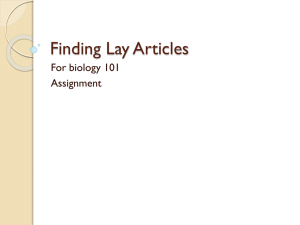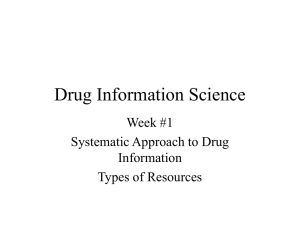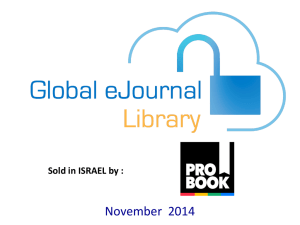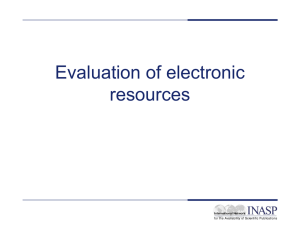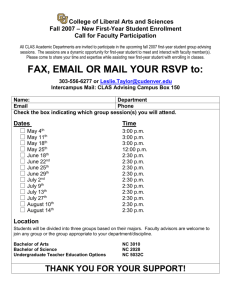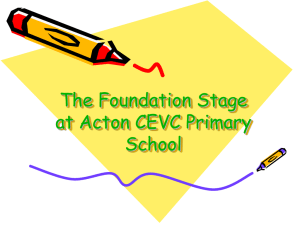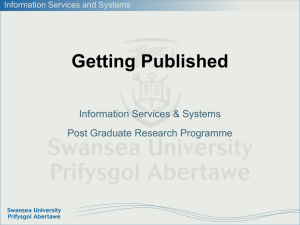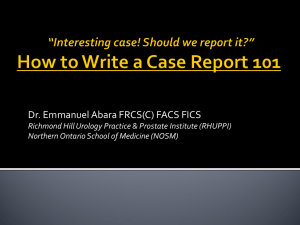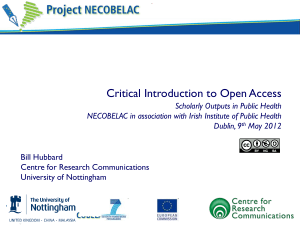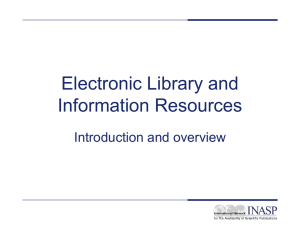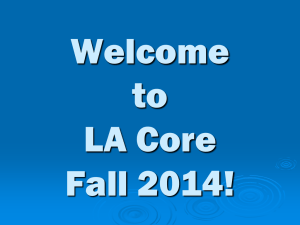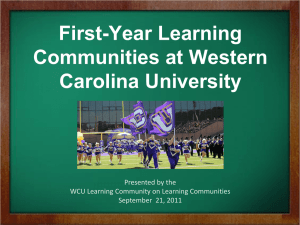My work is bleeding
advertisement
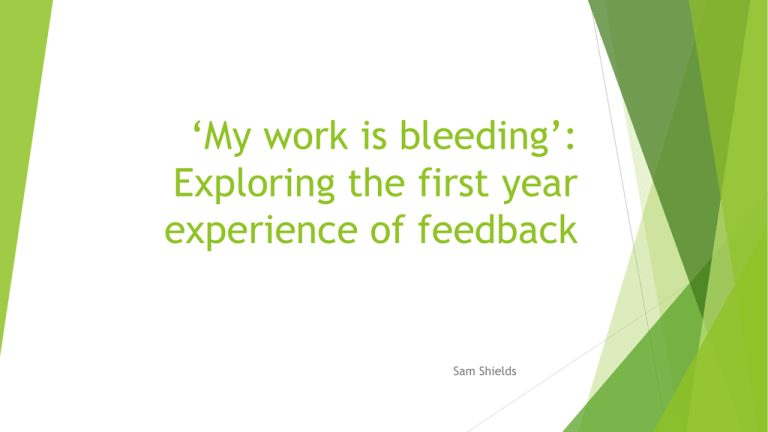
‘My work is bleeding’: Exploring the first year experience of feedback Sam Shields Context First year Humanities and Social Science students’ perceptions of feedback Widening participation and retention Assessment ‘history’ Learner identity A sign of ‘belonging’ Literature Formative assessment Feedback Student engagement with feedback Widening Participation First-year experience Barker & Pinard (2014) Lizzio & Wilson (2013) Walker & Hobson (2014) Research methodology Narrative Inquiry -Developmental trajectories -Learner transition -Generate understanding about particular learner experiences (Cousin, 2009) Interviews, writing stories, stimuli e.g. feedback sheets What participants say, but also how they say it… Metaphor Contrastive rhetoric Key findings: They are writing all over my work and it is like mangled up and most of the lecturers use red pen and I don’t know it kind of gets to me if I open it up and it’s covered in red crosses and marks and it’s horrible. It’s like my work is bleeding. (Josie, interview) Affective dimension A difference between positive and constructive feedback Positive feedback offered confirmation of ‘belonging’ ‘Stuck’ places for students that did not receive ‘positive’ feedback Liminality Liminality – betwixt and between Turner (1969), van Gennep (1960) Rite of passage Transitional Unstable, unclear about status Structural invisibility Threshold concept Meyer & Land (2005) Lecturer as a ‘significant other’ Implications for policy and practice: A focus on formative feedback in the first year (low-stakes assignments) Positive feedback Resources to support timeliness (reduce the anxiety of waiting for feedback) Areas for further research? Larger data sets e.g. students at different institutions, different disciplines A comparison of ‘stuck’ and ‘enabled’ students Retention and progress analysis Lecturers’ perspectives on the impact of first year feedback Getting published in learning and teaching Assessment journals e.g. Assessment and Evaluation in Higher Education, Assessment: Policy, Principles and Practice Subject specific journals e.g. Politics Higher Education Academy journals e.g. Bioscience Education Generic teaching and learning journals e.g. Studies in Higher Education, Teaching in Higher Education http://www2.hull.ac.uk/administration/sotl_network/sotl_resources/ generic_lt_journals.aspx References Barker, M. & Pinard, M. (2014) Closing the feedback loop? Iterative feedback between tutor and student in coursework assessments, Assessment & Evaluation in Higher Education, 39:8, 899-915, Cousin, G. (2009) Researching learning in higher education: an introduction to contemporary methods and approaches, London: Routledge Lizzio, A. & Wilson, K. (2013) First-year students’ appraisal of assessment tasks: implications for efficacy, engagement and performance, Assessment & Evaluation in Higher Education, 38:4, 389-406 Meyer, J.H.F. and Land, R. (2005) Threshold concepts and troublesome knowledge (2): epistemological considerations and a conceptual framework for teaching and learning, Higher Education, 49:3, 373-388 References Turner, V. (1969) The Ritual Process: Structure and Anti-Structure, London: Routledge and Kegan Paul van Gennep, A. (1960) The Rites of Passage, London: Routledge and Kegan Paul Walker, S. & Hobson, J. (2014) Interventions in teaching first-year law: feeding forward to improve learning outcomes, Assessment & Evaluation in Higher Education, 39:3, 326-338
